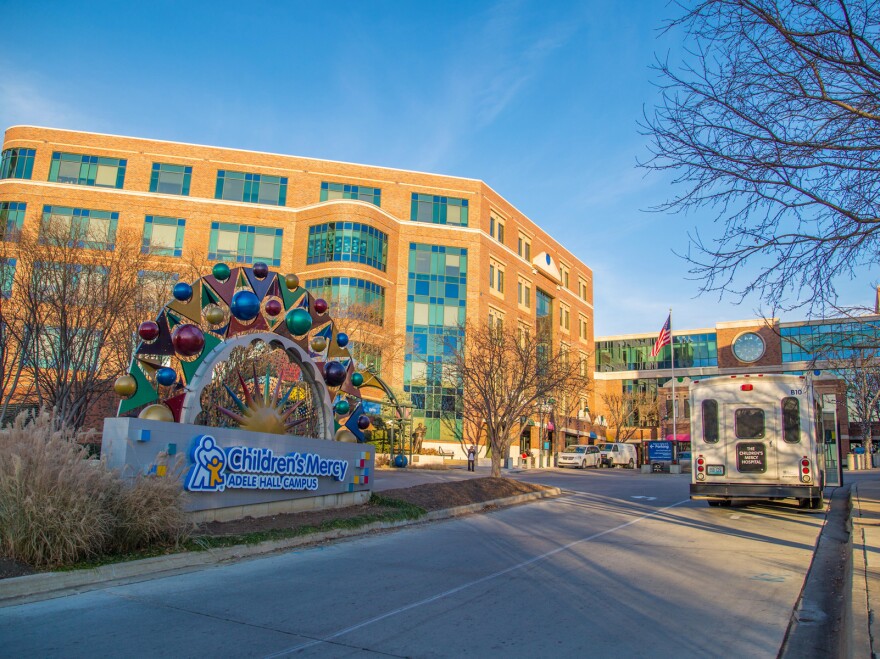On Aug. 15, doctors and nurses at Children's Mercy Hospital in Kansas City, Mo., realized they had a problem.
Children were coming into the emergency room with an illness that caused wheezing and breathing problems so severe that some children ended up in the ICU on ventilators. And it was spreading fast.
"By Aug. 20, we were beyond our bed capacity," Dr. Mary Anne Jackson, chief of the infectious diseases section at Children's Mercy, said at the IDWeek meeting in Philadelphia.
Since then, the virus that caused those illnesses, enterovirus D68, has sickened children across the country and may be responsible for the deaths of five children. Jackson and Dr. Aaron Milstone of Johns Hopkins Children's Centers briefed reporters on the outbreak Thursday morning.
Bottom line: There are still a lot more questions than answers about the outbreak and how the virus might affect children's health in the future, but we're learning. Here's what infectious disease specialists have found out to date.

This is the largest outbreak of EV-D68 ever recorded. Cases have been reported in 45 states and the District of Columbia. Though the CDC has confirmed 664 cases as of Wednesday, there are undoubtedly many, many more cases that are causing milder coldlike illnesses. "This is different this year, what we're seeing," Milstone said. "Something is different."
So far it's impossible to know what's making it different, Milstone says — if the virus has changed so it's more dangerous or if it's spreading so much more widely that we're seeing more cases, both mild and severe.
Five children who died have tested positive for EV-D68, but it's not known whether the virus caused their deaths, Milstone said.
The Midwest has been hit harder in this outbreak than the coasts. That may be because people there have immunity due to earlier, undetected outbreaks.
Children who don't have asthma are also at risk. Early on, it looked like most of the children who were being hospitalized with life-threatening breathing problems had a history of asthma. But Jackson says one-third of the patients at Children's Mercy who fell seriously ill had been healthy, with no previous respiratory issues. "If your child has ever wheezed in the past, get with your primary care physician to have an asthma action plan," Jackson said.
If your child is sick with a respiratory illness, you don't have to get him or her tested for EV-D68. There is no rapid test for enterovirus D68, and since there's no medication specific to it, the treatment will be the same. "We continue to restrict testing to children with unusually severe disease," Jackson said. That will help researchers figure out what's causing the severe cases, and also may help predict what will happen to those children in the future.
The best way to prevent getting sick with enterovirus D68 is to wash your hands. Enteroviruses typically circulate from midsummer until early fall; this year's outbreak is already waning. Since there's no vaccine for this bug, the best defense is time-tested infection control. Make sure that children wash hands often, cover their coughs and stay home if they're sick. (Milstone couldn't resist putting in a plug for the flu shot; last year, 108 children died of the flu.)
The one thing that parents and doctors would probably most like to know is the least clear — whether the rare cases of paralysis that have been reported in children who had been ill are tied to EV-D68.
It's known that enteroviruses can cause paralysis; polio is a notorious member of this large group. So it makes sense to look at EV-D68 as a cause. But there's no clear evidence that the limb weakness and paralysis experienced by a few children is a result of this virus.
Of the three children who had symptoms of flaccid paralysis at Children's Mercy, Jackson said, none tested positive for EV-D68.
"I expect there will be more cases across the United States," Jackson said, "and a number of different [causes] linked to these cases." The CDC has convened a group of neurologists to work on the issue. Figuring it out will take "very, very close study," she said.
Copyright 2021 NPR. To see more, visit https://www.npr.org.





